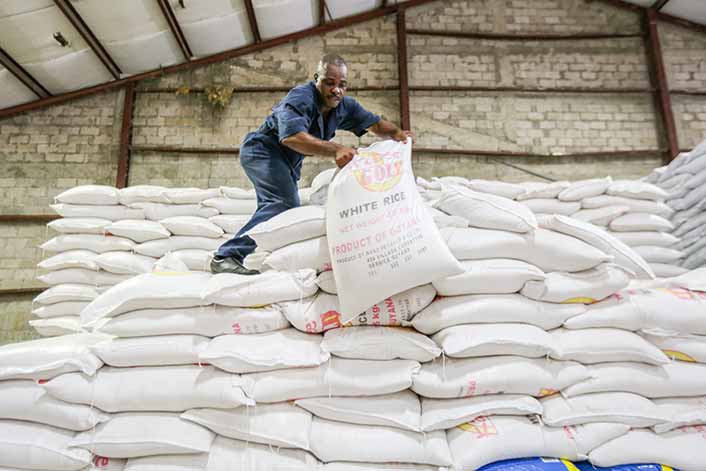Facts About Our Work in Saint Vincent
Food For The Poor (FFTP) partners with the Diocese of Kingstown, which has been in operation for 28 years in St. Vincent. FFTP also provides aid through Gifts In Kind.
In 2021, FFTP shipped 18 containers or essential goods to St. Vincent, including nonperishable food, medical and pharmaceutical supplies, generators, mattresses and assorted canned food.
The charity responded immediately with aid after the first eruption of La Soufrière on the northern tip of the island on April 9, 2021. A series of eruptions continued over the next few weeks that blanketed buildings and cars with a thick layer of ash and forced thousands of residents to evacuate.
About 20,000 people were forced to evacuate their homes, with 12,000 taking refuge in a mix of government-run or private shelters, or staying with family or friends.
Relief items sent included cleaning supplies, goggles and masks, hard hats, personal hygiene items, medical supplies, food and clothing.
The charity also purchased cleaning supplies that were shipped to St. Vincent and Barbados, both of which were affected by ash.
Shortly after the eruption, the charity airfreighted a disaster relief kit to Barbados, and those goods, along with relief items from FFTP’s partners in Trinidad and Tobago, Grenada and St. Lucia, were shipped to the island of St. Vincent and are being distributed by the Catholic Diocese of Kingstown.
Banana production employs 60 percent of the workforce and accounts for 50 percent of merchandise exports in St. Vincent and the Grenadines, with an emphasis on the main island of St. Vincent. Such reliance on one crop has made the economy vulnerable to fluctuations in banana prices and reduced European Union trade preferences. To combat these vulnerabilities, the government of St. Vincent and the Grenadines is focused on diversifying its economy away from its reliance on bananas.
This eastern Caribbean country consists of volcanic St. Vincent Island and the Grenadines, 32 smaller islands and cays. With a population of more than 101,000 people, St. Vincent is hilly with rich volcanic soils, and its volcano, Soufrière, last erupted in 1979, the year of independence from Britain. Two hydroelectric plants help power Saint Vincent’s diversifying economy, dependent in part on exports of bananas and arrowroot, valuable as a starch in carbonless copy paper. Tourism is of growing importance. Founded in 1765, the oldest botanical gardens in the Western Hemisphere are located in St. Vincent and the Grenadines. The language is English, and Protestantism is the largest religion. The currency is the Eastern Caribbean dollar and the GDP per capita is $12,100.
